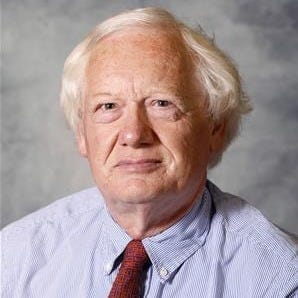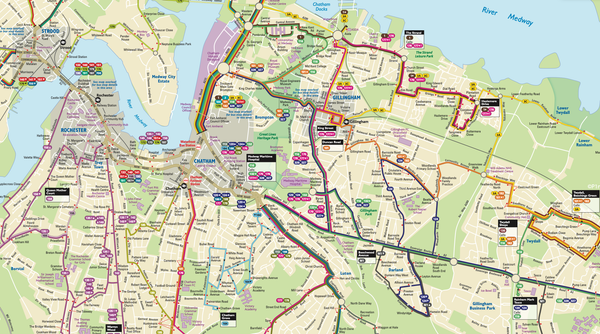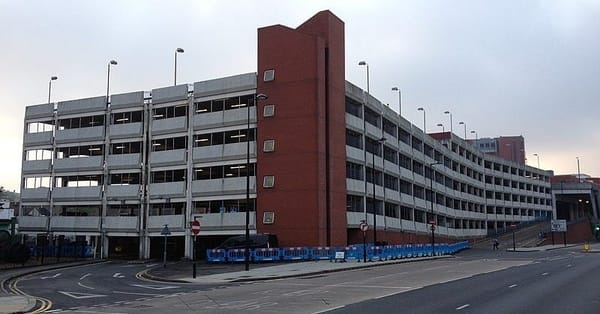“I wanted to do something for the people there”
What Steven asked Cllr Mark Jones, Labour councillor for Strood West
Councillor Mark Jones has been a Labour councillor on and off since 1991, returning to Medway Council in 2023 as part of the new Labour administration. Steven met with him at Cafe Nucleus in Chatham to talk about his time on various councils, the Rochester Film Society, and his issues with people who don’t use public transport properly.

Where are you the councillor for?
I’m the councillor for Strood West Ward.
Why that ward?
We targeted Strood West ward, amongst others, because it was one of the wards we needed to win a majority on Medway Council. I felt that it was an area which ought to have Labour representation. The streets in it shouldn’t have other parties representing it, and I felt it was something that we could win. It’s a good working-class area and I wanted to do something for the people there.
You are currently the vice chair of the planning committee. Are you the one who is responsible for blocking new homes for residents, or are you allowing new buildings and blighting our landscape?
What I hope and believe that I’m doing is assessing each planning application and its merits. We’ve always got to have in the back of our mind that there are a large number of homeless children in Medway. That’s been brought up at committees. We’ve got to bear in mind that there is a need for housing. I’m very careful, and myself and the Chair, Chrissy Stamp, take our responsibilities very seriously to act as a quasi-judicial committee and not assess each application other than on its merits. If we get an application for X number of houses, it’s clearly poor quality, they will have to be taken into consideration, but you know, given the extremes that you put in your question, I hope we’re somewhere in the middle, considering the applications on their merit.
Which political parties have you been a member of?
I’ve only been a member of the Labour Party. In fact, I started in the trade union movement before I was in the party. I’ve been a trade unionist for over 40 years.
How long have you been a member of the party?
1984, 1985, I think I joined.
Was there a particular reason you joined at that time?
I felt quite strongly that the Conservative government was on the wrong track. I mean, I was a trade unionist in the civil service, and we were feeling the heat of Conservative policies to cut the public sector. I think, without branching off too much for digression, there’s room for a good public sector and private sector working together to produce the goods for people. I felt quite strongly that some change was needed. Those were in the days of Mrs Thatcher. She was Prime Minister at the time. I was motivated to join. I think Neil Kinnock can take a lot of the credit for that. He was trying to make the Labour Party more electable at the time.
Have you always been a member in that time?
Membership hasn’t lapsed.
You’ve been a consistent member through all the highs and lows.
That’s right, for about 40 years now.
In your time as a member of the Labour Party, who’s been the best leader?
That is a very difficult question. I think people who win elections undoubtedly must be the qualifying candidates, but I would have a very great job separating some of them out. Harold Wilson. I think he had many great qualities, Tony Blair had qualities, and the present Prime Minister has considerable qualities. Neil Kinnock didn’t win any elections, but as I say, I was always admiring of his taking the Labour Party in the right direction and I think make it more electoral.
When did your name first appear on a ballot?
It was the old Rochester-upon-Medway City Council and their 1991 elections. There’s an interesting story to that. It’s probably a bit unfair me telling this story because the guy who was on the other end of the telephone denied that the conversation was exactly like that, and he’s since passed on, so he can’t deny my version. The Labour Party district secretary, as it was called in those days, that dealt with local government elections, rang me up and said we’ve had a candidate drop out for whatever reason. “I wouldn’t want you to think we’re scraping the bottom of the barrel, Mark, but would you like to do it?” And I said “Yes, I’d be willing to have a go.” I stood for the first time in a very working-class area. The Conservatives won two seats in the ward, and the Liberal Democrats won one seat, and Labour didn’t get any at that time. That was the first time in 1991. Without jumping the gun to the next question, I stood next for the county council of 1993 for the old Warren Wood ward, combined with St Margaret’s and Borstal ward. Very similar to where the boundaries lie for the Rochester West on Medway nowadays, and I was elected to the county council. That was after the 1992 financial crash, Black Wednesday, and also a lot of local issues in that area. The M2 was being widened at the time, the Channel Tunnel rail.
How long were you on Kent County Council for?
I was on Kent County Council until its purview over Medway expired in 1998. The Kent County Council elections in 1997, but we in Medway were kept on for a year. We didn’t have to contest those, and then in 1998, I came off.
We’re going through local government reorganisation at the moment. Having been on the council when Medway was formed as a unitary authority, what do you remember about that period of reorganisation?
I remember there were some challenges. We had to disaggregate from Kent County Council on an area structure. I believe I’ve heard that the current Kent County Council is talking about having a Kent-wide authority with some area committees. I have to say I never thought that worked terribly well, because it seemed to be largely officers speaking to members in a forum rather than actually those members being able to get to grips with making the policy. It tended to be more informative or consultative than actually making the policy. What I remember about it was that there were quite a lot of things to do. We had to set their way up. We had to appoint a Chief Executive. We had to appoint the chief officers. Of course, when you got down to a certain level of office, they recruited the rest. But we appointed a Chief Executive, directors of the various departments, assistant directors. Members were responsible for an awful lot of personnel-type work.




